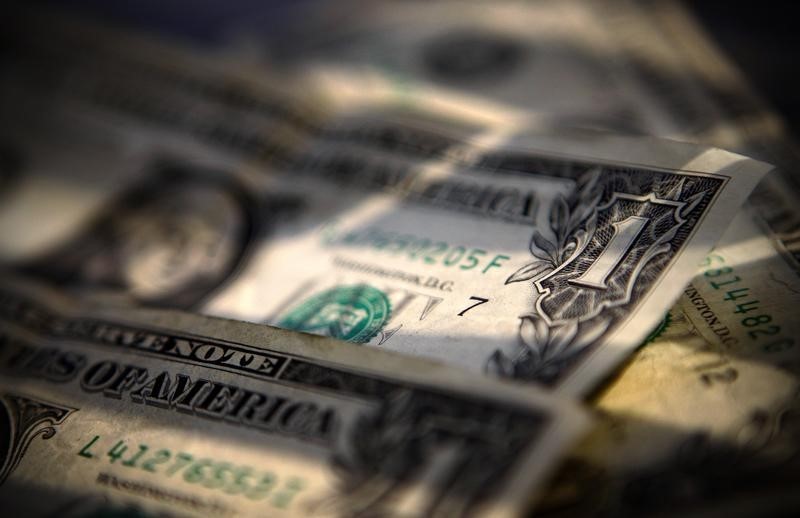Intel stock spikes after report of possible US government stake
By Peter Nurse
Investing.com - The dollar edged lower in early European trading Friday, but remains at elevated levels, supported by higher Treasury yields following the Federal Reserve's dovish stance.
At 3:50 AM ET (0750 GMT), the Dollar Index, which tracks the greenback against a basket of six other currencies, was down 0.2% at 91.710, following a 0.5% jump Thursday, the most in two weeks.
USD/JPY was down 0.1% at 108.81, falling slightly after the Bank of Japan widened its target band for the benchmark 10-year yield by an implicit 5 basis points. The move that had been trailed in the press and BoJ Governor Haruhiko Kuroda downplayed suggestions that it was tightening its policy.
GBP/USD rose 0.2% to 1.3951, after weakening 0.3% a day earlier on concerns that the U.K.'s vaccination campaign is set to slow. The Bank of England maintained its easy policy stance at its meeting on Thursday and warned the outlook for Britain's recovery remained unclear.
EUR/USD rose 0.1% to 1.1930 after falling around 0.5% Thursday as a third wave of Covid-19 cases hit large parts of Europe, while the risk-sensitive AUD/USD climbed 0.1% to 0.7762.
Federal Reserve Chairman Jerome Powell made it clear earlier this week that the central bank will maintain its stance of aggressive monetary stimulus, saying a near-term spike in inflation would prove temporary even though the Fed is projecting the strongest U.S economic growth in nearly 40 years.
This resulted in the benchmark U.S. 10-year yield climbing over 1.75% overnight, its highest level since January 2020, before easing below 1.70% in early European trading.
“The Fed keeps repeating that inflation will be allowed to overshoot and that they need to see the inflation first before anything related to tightening can be just barely considered,” said analysts at Nordea, in a research note.
“This will, in our view, allow USD bond yields and inflation expectations to continue to increase during Q2 (potentially a lot).”
Looking at the emerging markets, USD/RUB fell 0.3% to 74.115 with Russia’s central bank meeting later Friday. It’s expected to keep interest rates on hold at 4.25%, but pressure is building on the central bank to tighten policy as soaring food prices and a sanctions-weakened currency have driven inflation to the fastest pace in four years. Brazil and Turkey, two of the world's biggest emerging markets, both hiked rates by more than expected earlier this week to rein in inflation.
USD/TRY fell 0.4% to 7.2904, meaning that the lira has gained over 3.5% against the dollar this week.
“The Turkish central bank made an aggressive 200bp adjustment to the policy rate on the back of deteriorating global risk appetite, an uptrend in commodity prices and a weakening lira, adding to elevated inflation risks,” said ING analysts, in a research note.
